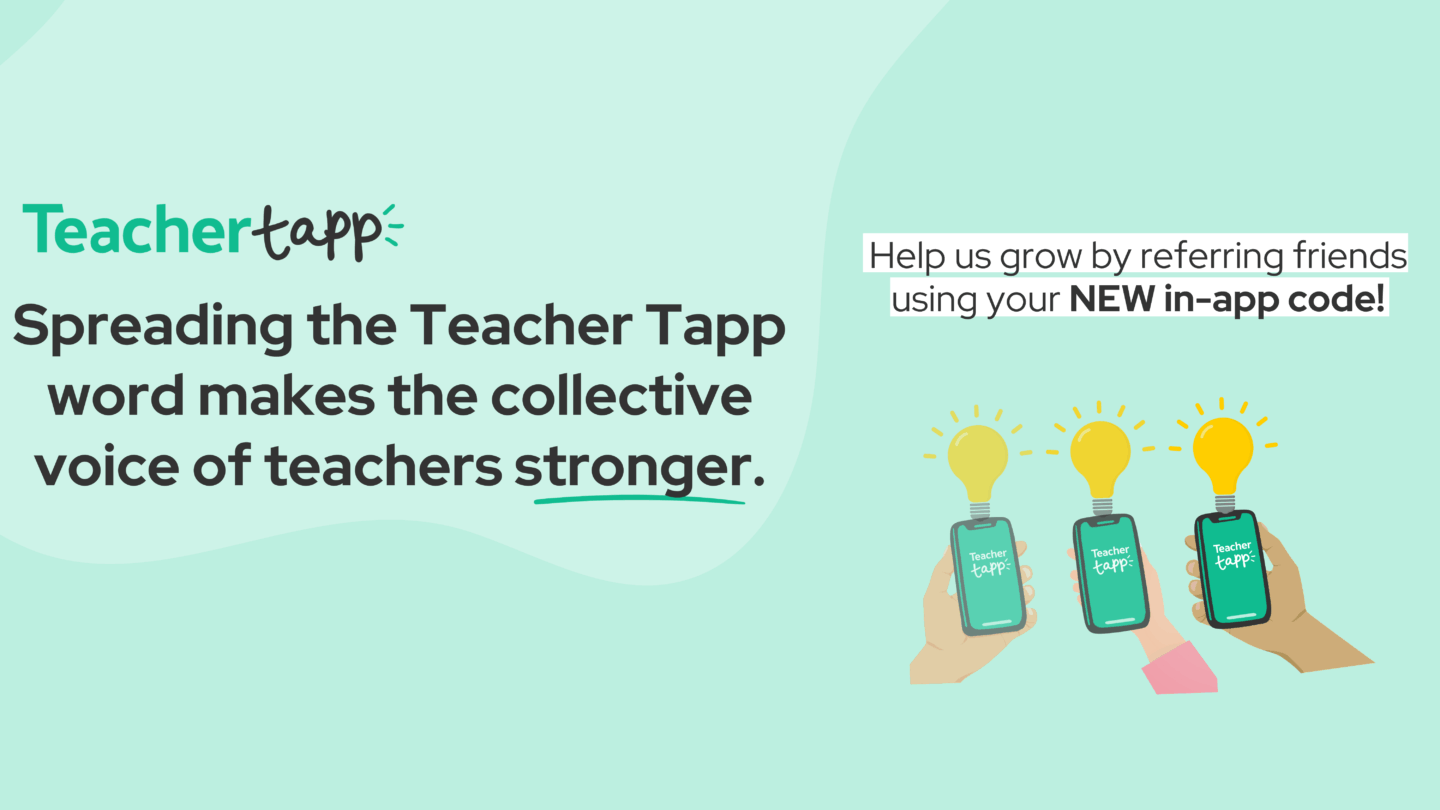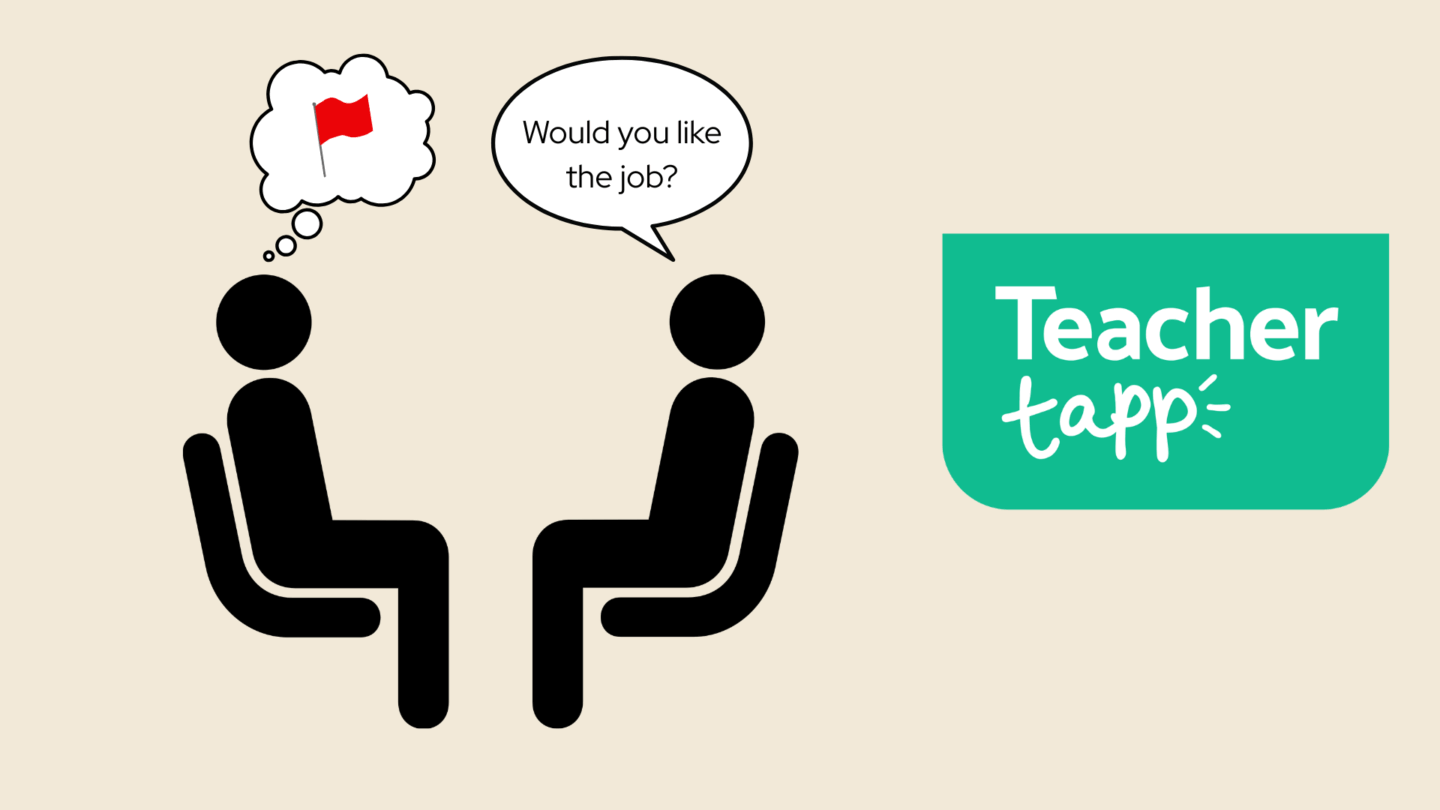Earning money outside teaching
It is getting cold and heating is more expensive than ever before. We wanted to see how many of you are making ends meet by earning extra money outside your normal teaching job. Turns out it is actually really common for teachers to do this, although mostly in adjacent jobs such as marking and tutoring. It’ll be no surprise to you that it is more common amongst younger teachers, but the age differences really aren’t stark – 40% of teachers in their 20s have other earnings versus 29% of teachers in their 50s. (We haven’t asked this question in exactly the same way before, but in the future we can see how your responses change.)

The appeal of work-from-home contracts
Worries about teacher shortages are becoming greater as we struggle to recruit onto teacher training courses. We wondered whether any of you were looking enviously at friends or family now working from home (or in hybrid contracts). It seems that some of you are! One third of you feel that work-from-home opportunities make it more likely that you will now seek to leave teaching.
This is more true for younger teachers and for women. We had assumed that those with children currently at home would find it more appealing but we didn’t find this to be particularly true. Do you know why? Is it simply that those of you who are young without children are looking to future challenges of combining work and childcare? Or do you want to work-from-home for other reasons? I’m sure we’ll come back to looking at this in more detail in the future so let us know what else we should ask.

Ofsted watch
It’s time for a quick review of how you feel now that this current Ofsted inspection framework has been around quite a long time. Answer? Well, the language of the framework has certainly ingrained itself in schools! A massive 84% of you have heard someone use the phrase ‘curriculum intent’ at some point this term, most commonly in training sessions or meetings. However, it’s use is no higher or lower than it was this time last year.
The inspection framework seems to be quite popular, at least amongst those of you who know what it says! Over 1-in-10 of you have blissfully managed to avoid learning anything about what is in the inspection framework!!! Of those who know about it, just 14% of you dislike the focus on curriculum, with others neutral or positive. And a tiny 8% of you preferred the old data-heavy inspection framework.
Many of you told us that you thought the primary phase teachers were feeling less comfortable with the current inspection framework, so we took a look to see whether this is true. We found that the younger the students you teach, the less you like the framework. Perhaps it is no surprise that it is most popular with humanities teachers who love to ponder these philosophical questions of what we should teach and why we should teach it!

Wanting longer AND shorter lessons
Two-thirds of secondaries have lessons of about an hour, but a notable number of you you would like lessons that are either longer or shorter. Who wants which? It really depends on which subject you teach. Arts, DT and PE would like longer lessons, presumably to accommodate practical activities that have long set up and pack up times. Some science teachers feel the same since it would allow them more time to accommodate practicals. By contrast, language and maths teachers are most likely to want more, shorter lessons. These subjects are ideally suited to practising short exercises every single day. If only we could accommodate all of this within one school! Once a upon a time, ‘single’ and ‘double’ lessons were common to facilitate this – we’ll be finding out how many secondaries still have these types of timetables in a follow up question this week.

Where do maths teachers find teaching resources?
A maths teacher got in touch asking where other maths teachers were currently getting their resources. We decided to ask a specially-crafted question for maths teachers. First, we asked them where a worked example they used in their last lesson had come from. The majority of maths teachers said they had made this particular worked example up themselves, with others finding their worked example in a variety of places, from websites through to colleagues. Given that maths is a subject with well-established teaching schemes available and widespread use of non-specialist teachers, it is interesting that just 11% said their worked example was from a published maths scheme. We next asked where the homework questions set had come from. For those setting homework after that particular lesson, the majority were using a dedicated homework service such as Sparx, Hegarty or MyMaths.

How do you serve your triple science?
Sometimes a teacher gets in touch with Teacher Tapp because their school is making a tough decision and we can help! So, last week science teachers answered some questions about how triple sciences are delivered in their school. Arrangements for GCSE science teaching in schools are diverse and complex, not least because there are a variety of ways that students can be entered for GCSE science qualifications.
The chart below shows the amazingly diverse number of ways that a school can invite students to sit three individual science GCSEs. The green slices on the chart show schools where science entry is entirely determined by the class you are in. In 9% of schools, everyone enters three sciences; in 4% most classes do; in 21% a minority of classes do (e.g. just the top set).
Half of schools give students a choice as to whether they study three sciences (although this option may not be open to all). Most typically, electing to take three sciences means dropping another option subject to gain extra teaching time (dark purple). Very few teach it with after-school classes but almost 1-in-10 are offering the choice to enter three sciences with no additional teaching time at all. Just 7% of schools have no opportunity for students to sit three science GCSEs.
There is a lot more to say about triple science entries (for example, they are far more common in fee-paying and low FSM schools) but we’ll leave the super-interested to click through to a separate post to read more.

And finally…
The latest Chartered College and Teacher Tapp Podcast is out, with conversation about cognitive science. Find the best way to listen here on this page.
Our top blogs this week were Mr Kinnairdre’s post on being a form tutor for secondary teachers and the EEF’s post on talk in maths for primary teachers!
Other posts were:





